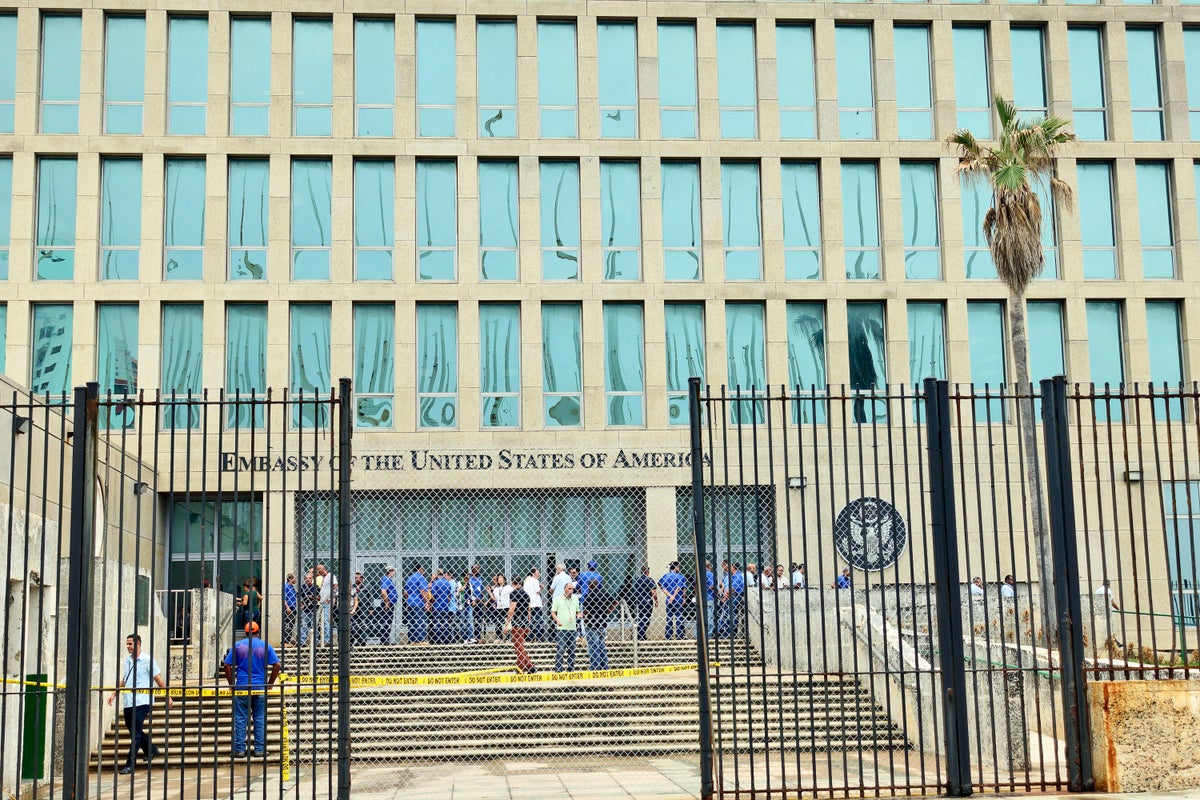-
Working Parents, Plan for the Week with This Simple Exercise - Harvard Business Review (No paywall)
 As work travel and hours in the office mount, work parents are feeling the logistical challenges of making every week happen — from kid pickup and dropoff and sports practice to meal planning and doctor’s appointments. The main difficulties lie in managing the firehose of information, coping with decision fatigue, and dealing with surprises like an illness or a forgotten event. The best approach for avoiding — or mitigating — these obstacles is the weekly preview: A planning session between the core adults in the family each week to go over what’s coming. The week’s plan is documented and discussed, highlighting variances from typical weeks and indicating back-up plans for particularly tricky spots.
As work travel and hours in the office mount, work parents are feeling the logistical challenges of making every week happen — from kid pickup and dropoff and sports practice to meal planning and doctor’s appointments. The main difficulties lie in managing the firehose of information, coping with decision fatigue, and dealing with surprises like an illness or a forgotten event. The best approach for avoiding — or mitigating — these obstacles is the weekly preview: A planning session between the core adults in the family each week to go over what’s coming. The week’s plan is documented and discussed, highlighting variances from typical weeks and indicating back-up plans for particularly tricky spots.
Continued here -
Not an extrovert or introvert? There’s a word for that. - National Geographic Premium (No paywall)
 Over the years, when people have asked if I’m an introvert or an extrovert, I haven’t known what to say because I don’t identify fully with either personality type. It turns out I’m hardly alone. It’s true, I’m often reflective and introspective, that I prefer to hang out with people one-on-one or in small groups, and that I often crave time alone to recharge—all of which are characteristics of introverts. But I can also be outgoing and chatty at parties, as well as assertive and action-oriented in my professional life, qualities that are associated with extraversion.
Over the years, when people have asked if I’m an introvert or an extrovert, I haven’t known what to say because I don’t identify fully with either personality type. It turns out I’m hardly alone. It’s true, I’m often reflective and introspective, that I prefer to hang out with people one-on-one or in small groups, and that I often crave time alone to recharge—all of which are characteristics of introverts. But I can also be outgoing and chatty at parties, as well as assertive and action-oriented in my professional life, qualities that are associated with extraversion.
Over the years, the Myers-Briggs Type Indicator (MBTI) has become a popular personality test throughout the world and it’s widely used in the workplace and educational settings. It classifies people into various types based on their scores on trait dimensions including extraversion vs. introversion, feeling vs. thinking, sensing vs. intuiting, and perceiving vs. judging. Since it was first published in 1975, the MBTI has popularized the concept of “personality types,” though Swiss psychiatrist Carl Jung was the one who introduced the terms extraversion and introversion into psychology in the early 1900s.
Continued here -
She Didn't Qualify for a Transplant - So Now She Has Two Pig Organs - WIRED (No paywall)
 In the first procedure of its kind, a 54-year-old New Jersey woman received a genetically engineered pig kidney and thymus after getting a heart pump.
In the first procedure of its kind, a 54-year-old New Jersey woman received a genetically engineered pig kidney and thymus after getting a heart pump.
Continued here -
The Merger Self, the Seeker Self, and the Lifelong Challenge of Balancing Intimacy and Independence
 Each time I see a sparrow inside an airport, I am seized with tenderness for the bird, for living so acutely and concretely a paradox that haunts our human lives in myriad guises — the difficulty of discerning comfort from entrapment, freedom from peril. It is a paradox rooted in the early development of the psyche and most poignantly manifested in our intimate relationships as we confront over and over the boundary between where we end and the other begins, the challenge of balancing intimacy and independence.
Each time I see a sparrow inside an airport, I am seized with tenderness for the bird, for living so acutely and concretely a paradox that haunts our human lives in myriad guises — the difficulty of discerning comfort from entrapment, freedom from peril. It is a paradox rooted in the early development of the psyche and most poignantly manifested in our intimate relationships as we confront over and over the boundary between where we end and the other begins, the challenge of balancing intimacy and independence.
Pulsating beneath the paradox are two opposing forces — one tugging us toward the comfort of the known, the safety of the terminal, the other beckoning us to fly into the open sky of the unknown, with all its sunlit freedoms and its storming dangers. In her 1976 book Passages: Predictable Crises of Adult Life (public library), Gail Sheehy (November 27, 1936–August 24, 2020) explores these “two sets of forces always at loggerheads inside us over the questions of how far and how fast we shall grow,” terming them the Merger Self and the Seeker Self.
Continued here -
How To Spot Bad Science
 Unless you’ve studied it, most of us are never taught how to evaluate science or how to parse the good from the bad. Yet it is something that dictates every area of our lives. It is vital for helping us understand how the world works. It might be too much effort and time to appraise research for yourself, however. Often, it can be enough to consult an expert or read a trustworthy source.
Unless you’ve studied it, most of us are never taught how to evaluate science or how to parse the good from the bad. Yet it is something that dictates every area of our lives. It is vital for helping us understand how the world works. It might be too much effort and time to appraise research for yourself, however. Often, it can be enough to consult an expert or read a trustworthy source.
But some decisions require us to understand the underlying science. There is no way around it. Many of us hear about scientific developments from news articles and blog posts. Some sources put the work into presenting useful information. Others manipulate or misinterpret results to get more clicks. So we need the thinking tools necessary to know what to listen to and what to ignore. When it comes to important decisions, like knowing what individual action to take to minimize your contribution to climate change or whether to believe the friend who cautions against vaccinating your kids, being able to assess the evidence is vital.
Continued here -
Massive amounts of H5N1 vaccine would be needed if there's a bird flu pandemic. Can we make enough?
 The unsettling reality of H5N1 bird flu circulating in dairy cow herds in multiple parts of the United States is raising anxiety levels about whether this dangerous virus, which has haunted the sleep of people who worry about influenza pandemics for more than 20 years, could be on a path to acquiring the ability to easily infect people.
The unsettling reality of H5N1 bird flu circulating in dairy cow herds in multiple parts of the United States is raising anxiety levels about whether this dangerous virus, which has haunted the sleep of people who worry about influenza pandemics for more than 20 years, could be on a path to acquiring the ability to easily infect people.
To be clear, there is no evidence that this is currently the case — the sole confirmed human case reported in Texas three weeks ago was in a farm worker who had contact with cattle. There is no way to predict if the virus will acquire the capacity to spread between people, or when and under what conditions it would make that fateful leap if it does.
Continued here -
Can aspirin help protect against colorectal cancers? - National Geographic Premium (No paywall)
 Colorectal cancer, a cancer of either the large intestine or rectum, is the third most common type of cancer, and the second most common cause of death from cancer, worldwide. There were 1.9 million new cases diagnosed across the globe in 2020, according to the World Health Organization, and these numbers are expected to grow. In the United States, the rates of colorectal cancers have been rising in people younger than age 50 since the 1990s, which includes more young people dying from the disease, according to the National Cancer Institute.
Colorectal cancer, a cancer of either the large intestine or rectum, is the third most common type of cancer, and the second most common cause of death from cancer, worldwide. There were 1.9 million new cases diagnosed across the globe in 2020, according to the World Health Organization, and these numbers are expected to grow. In the United States, the rates of colorectal cancers have been rising in people younger than age 50 since the 1990s, which includes more young people dying from the disease, according to the National Cancer Institute.
Now a new study published in the journal Cancer shows that colorectal cancer patients who took a daily dose of aspirin had a lower rate of metastasis to the lymph nodes and stronger immune response to their tumors. The research suggests that aspirin may be boosting the ability of the immune system to hunt for cancer cells.
Continued here -
As a financial planner, I give my clients 4 tips to make their money last a lifetime - Business Insider (No paywall)
I work with clients who want to make sure their money lasts for their lifetime, but I also remind them to benefit from their money now.
Continued here -
Wait, do I need to worry about "forever chemicals"?
 A roadmap for understanding PFAS risk, testing, and more.
A roadmap for understanding PFAS risk, testing, and more.
Continued here -
Soviet-Era Pseudoscience Lurks behind ‘Havana Syndrome’ Worries - Scientific American (No paywall)
 Dodgy studies and fantastic claims have long powered a belief in devious Russian brain weapons, from mind control to microwave devices
Dodgy studies and fantastic claims have long powered a belief in devious Russian brain weapons, from mind control to microwave devices
Continued here
Thursday 25th April 2024
Top stories this week